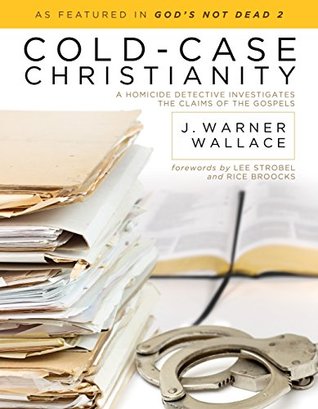More on this book
Community
Kindle Notes & Highlights
Read between
May 17, 2018 - January 14, 2022
“Christianity is a statement which, if false, is of no importance, and, if true, is of infinite importance. The one thing it cannot be is moderately important.”
it is possible to become a Christian because of the evidence rather than in spite of the evidence.
All of us hold presuppositions that can impact the way we see the world around us.
Philosophical naturalism rejects the existence of supernatural agents, powers, beings, or realities. It begins with the foundational premise that natural laws and forces alone can account for every phenomenon under examination.
he would not allow himself any other option, even though the evidence might be better explained by the very thing he rejects.
When we smuggle our conclusions into our investigation by beginning with them as an initial premise, we are likely to beg the question and end up with conclusions that match our presuppositions rather than reflect the truth of the matter.
all of us have a point of view; all of us hold opinions and ideas that color the way we see the world.
The question is not whether or not we have ideas, opinions, or preexisting points of view; the question is whether or not we will allow these perspectives to prevent us from examining the evidence objectively.
I failed to differentiate between science (the systematic, rational examination of phenomena) and scientism (the refusal to consider anything other than natural causes).
what’s reasonable in light of the evidence that has been presented to them.
the biblical definition of faith is a well-placed and reasonable inference based on evidence.
the circumstantial evidence in our universe is consistent with God’s existence and involvement as the uncaused first cause, the fine-tuner, the designer, and the moral lawgiver required to account for all the evidence we observe.
The traditional definition of biblical inerrancy maintains that the Bible is accurate and completely free of error.
When is it reasonable to conclude that something is true? When is the evidence sufficient?
help people walk through the distinctions between reasonable doubts (that are grounded rationally) and possible doubts (that are grounded emotionally).
When people complain that there is evil in the world, they are not simply offering their opinion. They are instead saying that true, objective evil exists. They are complaining about evil behavior as though this behavior ought to be recognized by all of us, regardless of our personal likes, dislikes, or opinions about human conduct.
In order for true evil to exist, there must be a source of true good that transcends any and all groups that might make a claim about the existence of evil.
It turns out that the existence of evil is actually another evidence for God’s existence, another piece of the puzzle that reveals God’s image.
If this is true, then questions about why God might not stop evil are a bit premature. At best, we can say only that God hasn’t stopped evil yet.
the problem of evil does not present us with a reasonable doubt.
Many of the people we are trying to reach are willing to deny the truth of God’s existence on the basis of an emotional or volitional response, rather than on the basis of good evidence.
The existence of a well-articulated defensive argument alone is no reason to surrender our position,
The claim that “objective truth does not exist” is self-refuting because it is, in fact, an objective claim about truth.
skeptics also need to defend their doubt evidentially.
Possible alternatives are not reasonable refutations.
If we are going to claim that the ancient stories are biased (because they were written by Christians), we cannot reject them with a bias of our own (against supernaturalism).
God can use you right now, in this very moment, to make a case for the truth.


